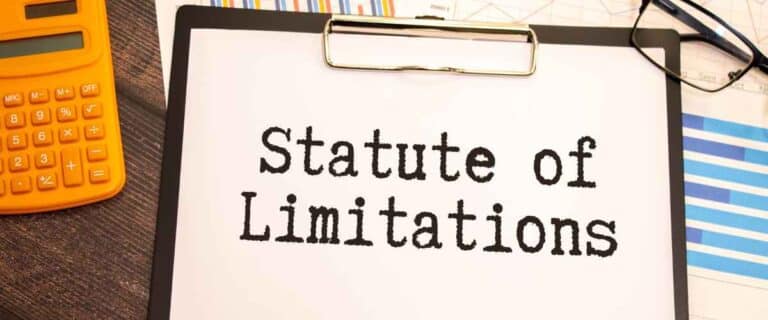Sleep deprivation is a common issue that affects millions of Americans, and its impact on daily commutes is significant. In Washington State, drowsy driving remains a leading cause of accidents, and the risks associated with it can be life-altering.
As a Seattle car accident lawyer, it’s important to highlight the dangers of driving while sleep-deprived and what drivers can do to minimize these risks.
1. Understanding the Scale of Sleep Deprivation in Washington
The National Highway Traffic Safety Administration (NHTSA) reports that approximately 91,000 accidents occur yearly in the U.S. because of drowsy driving, which is about 1% to 2% of all auto accidents.
Sleep deprivation impairs reaction times, cognitive functions, and decision-making, making it as dangerous as driving under the influence of alcohol. According to the Centers for Disease Control and Prevention (CDC), an adult needs at least 7 hours of sleep per night to function properly, but over 35% of adults in the U.S. do not meet this requirement.
If you’re injured by a drowsy driver, seeking legal help from a Seattle car accident lawyer is essential for protecting your rights and pursuing fair compensation.
2. The Dangers of Driving While Sleep-Deprived
Driving while sleep-deprived has similar effects to driving under the influence. The National Highway Traffic Safety Administration (NHTSA) reports that staying awake for 18 hours is comparable to having a blood alcohol concentration (BAC) of 0.05% while staying awake for 24 hours equates to a BAC of 0.10%—above the legal limit in all states. This impairment significantly increases the likelihood of accidents.
Drivers in Washington must be aware of these risks and recognize the signs of drowsy driving, such as frequent yawning, drifting lanes, or difficulty focusing. As a car wreck lawyer near me would advise, pulling over and taking a short nap or finding alternative transportation are practical steps to prevent accidents.
3. Washington Laws and Sleep-Deprived Driving
Washington State has specific laws that address negligent driving, including drowsy driving. Under RCW 46.61.5249, Washington defines negligent driving in the second degree as operating a vehicle that endangers others due to a lack of caution or vigilance. While the law does not specifically mention sleep deprivation, driving while impaired by fatigue could fall under this statute.
A Seattle car accident lawyer can help victims of sleep-deprived drivers seek justice by demonstrating that the at-fault driver’s lack of sleep contributed to negligent driving. Washington State’s comparative fault laws (RCW 4.22.005) also allow victims to recover compensation even if they were partially at fault, which can be important in complex drowsy driving cases.
4. Statistics Highlighting the Severity of the Problem
Sleep-deprived driving is not a minor issue; it’s a nationwide crisis. The NHTSA estimates that over 100,000 crashes every year involve drowsy driving, resulting in approximately 1,550 deaths and 71,000 injuries. In Washington, the WTSC’s data shows that drowsy driving crashes are most likely to occur between midnight and 6 a.m. or in the late afternoon when circadian rhythms dip.
As an injury lawyer in Washington will emphasize, these statistics highlight the need for proactive measures to combat sleep deprivation among drivers. Knowing the peak times for drowsy driving accidents can help you plan your commute better and avoid high-risk periods.
5. What You Can Do to Reduce the Risk of Sleep-Deprived Driving
If you are struggling with sleep deprivation, there are practical steps you can take to stay safe on the road:
- Get Enough Sleep: Prioritize sleeping 7-9 hours each night. This is the most effective way to combat sleep deprivation and reduce the risks associated with drowsy driving.
- Avoid Driving During Peak Drowsy Hours: If possible, avoid driving between midnight and 6 a.m. and late in the afternoon, when drowsy driving accidents are most frequent.
- Use Public Transportation or Carpool: If you feel too tired to drive, consider using public transportation or carpooling. This can reduce the risk of accidents and provide a safer commuting option.
- Pull Over When Necessary: If you start feeling drowsy on the road, take a nap at a safe location. Even a short 15- 20-minute nap can help improve alertness and reaction time.
- Practice Healthy Sleep Habits: Create a sleep-friendly environment at home by avoiding caffeine and screens before bedtime. Good sleep hygiene can improve overall sleep quality and reduce the risk of sleep deprivation.
6. Legal Recourse After a Sleep-Deprived Driving Accident
If you’ve been injured in an accident caused by a sleep-deprived driver, seeking the assistance of a Seattle car accident lawyer is crucial. A skilled attorney can help gather evidence, such as the at-fault driver’s work schedule, sleep habits, or electronic logs from commercial vehicles to prove fatigue played a role in the crash.
In Washington State, a Seattle auto accident attorney can also help you navigate the complexities of insurance claims and ensure you receive the compensation you deserve for medical bills, lost wages, and other damages. Consulting a car wreck lawyer near me ensures your rights are protected and you have the best possible legal representation.
Contact An Attorney for Assistance
Sleep deprivation poses a serious threat to commuters in Washington State, leading to accidents that can have devastating consequences. By understanding the risks, following preventative measures, and knowing your legal options, you can reduce your chances of being involved in a drowsy driving crash.
If you or someone you know has been affected by a sleep-deprived driver, reaching out to an injury lawyer in Washington can provide the support and guidance needed to seek justice and compensation.




